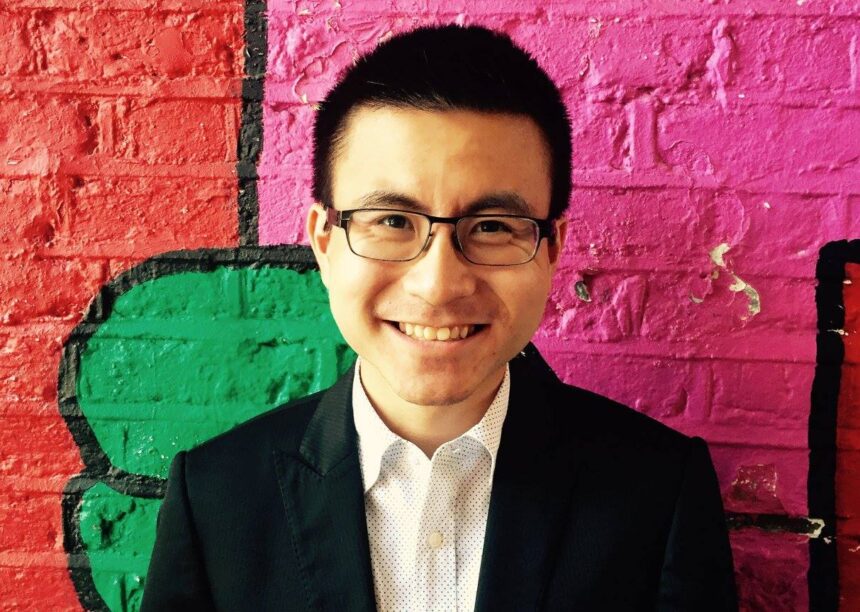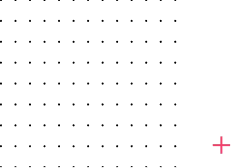Impact Innovators in the Zinc Ecosystem: Tatseng Chiam, COO at RideTandem

Tatseng Chiam is co-founder and COO of RideTandem, a mobility startup on a mission to tackle transport poverty in rural areas. RideTandem, which recently raised £2.3m to scale its impact beyond the UK, was part of Zinc’s second mission, dedicated to improving the lives of communities impacted by automation and globalisation.
What did your journey look like prior to joining Zinc?
I grew up in a transport household surrounded by entrepreneurs. My dad spent a lot of his career working for Mercedes Benz in Southeast Asia and as a kid I was surrounded by people who were obsessed with transport, cars and Formula One. On the other hand, I hate the smell of petrol and don’t even have a driving licence. I’ve ended up living and working in places with really poor public transport infrastructure, so have really felt first hand the pain of commuting without a car if you don’t live and work in a big, well connected city. I studied politics and economics at university, and have spent most of my career in professional services spanning management consulting, renewable energy, investment banking, then early stage impact investing. I have always known I would eventually go down the entrepreneurial path.
What motivated you to join this Zinc mission?
I found the mission to help support communities left behind by automation and globalisation, and unlock new pathways to prosperity, really inspiring. I’ve spent a lot of time in places that have traditionally been neglected by policy makers and just felt there was so much overlooked human potential in those communities because the right enablers weren’t in place. One of the biggest selling points of Zinc is that it intentionally aims to recruit very diverse cohorts. So many of the teams that go on to get funded are led by women, people of colour, people who are neurodiverse or otherwise underrepresented in tech. It’s great to see this diversity coming through.
Did this path feel risky to you? If so, how did you manage that risk?
The entrepreneurial path is definitely risky by definition. And I witnessed that growing up watching lots of entrepreneurs in my family go through the emotional and financial highs and lows. I wanted to make sure I was in a good position financially before starting on my own founder journey. I had some student loans from my MBA in the US, so once those were cleared I felt in a good position to take the leap and that’s when I discovered the Zinc Venture Builder, which felt like a great fit.
What excited you about the Zinc Venture Builder?
I think for me it was the mission-led approach that got me excited. I had considered a couple of other pre-idea, pre-team incubators, but I liked the idea of being able to join a cohort where I knew that everyone was dedicated to the same mission. When I was ready to start my own business, I realised there wasn’t anyone in my own professional network who had the right complementary skills and was also ready to start a business at that time, so the prospect of joining a cohort of fifty potential co-founders was really exciting. I also wanted to be in an environment where peer learning and accountability were core to the culture. There’s something so inspiring about the buzz of being in the same space as dozens of highly motivated people and being able to bounce ideas around. It’s incredibly productive.
How have you used the Zinc network of fellows, advisors, experts and coaches?
The Zinc network has been valuable for making introductions, particularly to investors who then went on to back RideTandem.
What are you most proud of on your RideTandem journey so far?
There are three big things I’m really proud of. The first is not only surviving through Covid, but thriving through it. In a world where so many workplaces were closed overnight, it really forced us to focus on the workforces that were still required to come into physical locations. Looking back it really helped us to accelerate towards product market fit servicing blue collar workers. Secondly, I’m proud of the financial impact we’re enabling for the people who use our services. The average cost of car ownership in the UK is about £80 pounds a week. The average cost of a RideTandem service for a passenger is around £12.50 per week. That’s a huge and meaningful saving for the thousands of passengers that use our services. Finally I’m really proud of our team. We’re about to hit a headcount of 40 and our employer Net Promoter Score puts us in the top 1% of employers in the tech industry.
What have been some of your biggest challenges as a founder so far?
Learning to manage the psychological burden that comes with being a founder has been a real journey for me, especially with RideTandem being an operationally heavy business running 24/7. In the early days the customer support line diverted directly to my mobile phone and I’d need to be available at all hours. It was very difficult to switch off. The second big one has been fundraising. We were about to close our first institutional fundraise right as Covid hit. We were a shared transport startup trying to raise in those early days of the pandemic and some investors were spooked. We got there eventually but it took much longer than planned. And more generally, fundraising has been hard at times as many investors simply haven’t personally felt or seen that specific pain we’re solving so there’s been a process there in educating them and taking them on the journey.
What keeps you motivated through the really hard days?
The energy of our incredible RideTandem team keeps me focussed through the ups and downs. And also our B2B clients, especially the passengers. Knowing that our service is enabling them to work in roles they might not otherwise be able to take on, to support their families, is an incredible motivator to keep pushing forward with our mission day in, day out.
How do you look after your mental and physical well being on this journey?
I grew up surrounded by a tropical rainforest, so for me now as an adult, time in nature is really important to my well being. Even if it’s just 5 or 10 minutes a day in a nearby park, some time outside appreciating nature makes a big difference. I also try to do regular physical exercise. I think some of my clearest thinking is done when I’m away from my laptop on a bike ride. Finally I’ve found joy in rediscovering some of my childhood hobbies such as gaming. We try to encourage our team to take time to really switch off too. We have a really generous holiday policy and remind people to remove work related apps and notifications when they’re on holiday.
Looking back on your founder journey so far, is there anything you would have done differently?
The quote “don’t let perfect be the enemy of good” comes to mind here. When I think about our least productive period as a company, it was when we were trying to get things perfect. We wasted weeks running spreadsheets and trying to pull statistics in advance of identifying our first geographical area, when what we should have done is just make an informed decision, committed, moved forward and tried something else if it didn’t work. It can be easy to hide in the safe cocoon of an office and lull yourself into a false sense of productivity, when what you really need, especially in the early days, is to get out and get in front of customers. Get those “no”s early and move on.
What are you currently really excited about?
I’m really excited about our plans for international expansion, starting with Germany. The signals from both the supply side with transport partners and the demand side with clients has been really promising. The process of looking to expand into a new market has been a really useful opportunity to do an operational stocktake and build a playbook for what success looks like.
Looking ahead, what impact do you hope to have had?
To date, we’ve enabled nearly £50 million of wages for passengers who otherwise wouldn’t have been able to get to work. I’m really excited for the day when we can say that is £500 million, then £1 billion. I’m really excited by the social impact that we will have had if we’re able to pull that off.
Who inspires you on this journey?
On a personal level, my biggest inspiration has always been my grandmother. She grew up in China during the Second World War and was forced to flee the country with just the clothes on her back. She has worked incredibly hard her whole life and I’m really happy she now gets to enjoy the rewards of all of the hard work. As difficult as my journey has been at times, I remind myself that nothing will ever compare to the experiences she has been through. On a professional level, I really admire Mathilde Collin, the CEO and founder of Front, which has become a successful unicorn in Silicon Valley. Matilde is incredibly generous with her time and strikes a great balance between being aware of (and overcoming) the challenges faced by underrepresented founders like her, and actively helping others to succeed.
Do you have any favourite resources, tools or communities for support and advice as a founder?
Landscape VC has a really useful vetted-but-anonymous Slack community that is a “safe space” for founders to ask questions, share advice, give feedback and share experiences of building their businesses. And I’ve got a lot of value from the Operations Nation community. I would highly recommend both of these resources.
What is your current top priority? And do you have any asks of the Zinc network?
Our top priority is building our pipeline of B2B customers in the logistics, food manufacturing and retail sectors, so any introductions there would be highly appreciated.
Finally, what advice would you give to someone considering joining the next Zinc mission?
Be as proactive as you can with reaching out to the Zinc team, Fellows network and your fellow founders for advice, introductions and support. There is so much potential and resources within the community and it’s up to you to make the most of it. Secondly, have a clear anchoring in what your core non-negotiables are in this journey, and what you’re willing to be flexible and open minded about. If you’re too rigid you risk missing out on exciting opportunities. But if you don’t have some sense of focus or it is possible to be a bit like a kid in a candy store and get pulled in too many directions. Finally, remember to celebrate – and keep a record of – all the wins along the way, big and small!
Zinc’s next Venture Builder cohort will begin in May 2024, with the aim of Improving the Health of People and the Planet. Find out more information on the specific investment priorities here and apply today.
Join the Zinc community
Stay up to date with all Zinc updates and future posts as part of our fast growing community.
Featured Resources
Impact Report 2023
We started Zinc with the hypothesis that missions are an effective way to attract highly ambitious, talented and experienced groups of innovators, who might not recognise themselves as “classic entrepreneurs” but are ready and able to start a new commercial and successful venture to tackle some of our most pressing societal issues.
The world has overcome the sorts of challenges we face today when it has adopted a mission-based approach to the biggest problems and brought together world-class talent to invent and innovate, e.g: NASA and landing a man on the moon, the LSE blueprinting the British welfare state, or the Gates Foundation aiming to eradicate diseases.
On this basis and assumption, we designed Zinc as a new mission-based Venture Builder — a place where global talent, ‘impact makers’, can join to experiment and develop new solutions to our most pressing societal issues.
To Eliminate Environmental Threats to Our Health
Environmental health threats pose a grave danger to human health and well-being, causing suffering to individuals and communities worldwide. These threats, which include chemical pollution, climate change, and biological hazards, cause acute and chronic diseases and exacerbate existing health conditions.
To protect those we care about, we must tackle the causes of environmental degradation, shield people from the consequences of environmental harm, and, where protection fails, we must mitigate the health impacts they suffer.
This demands action to improve all aspects of our environment: soil, food, air, water, and the built environment. It requires us to focus on every aspect of human health to reduce suffering.
Entrepreneurship and technology are powerful means to tackle these challenges. That’s why we are backing 70 founders to build innovative companies addressing this mission.


